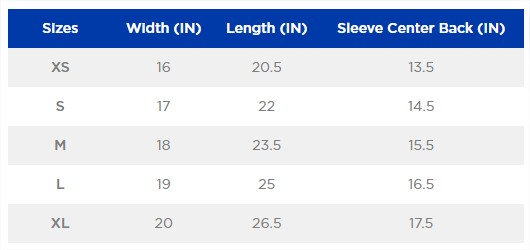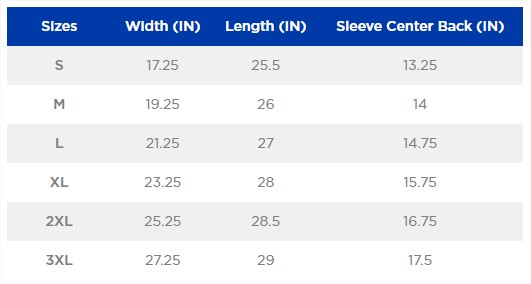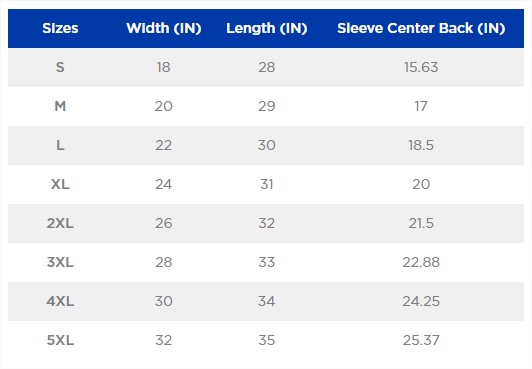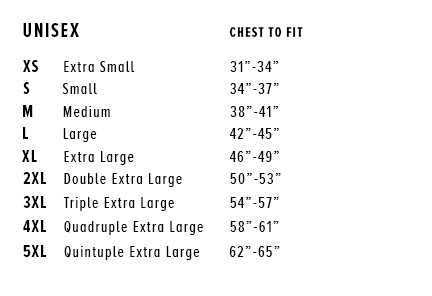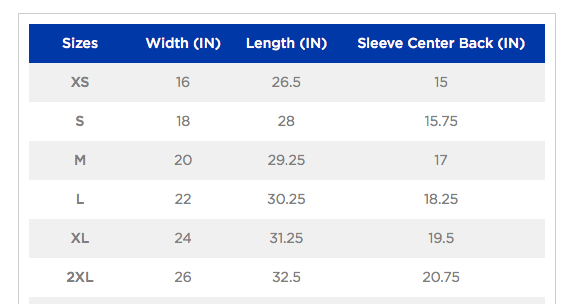Winnipeg Whips Hat
$5.00 CAD – $25.00 CAD
Once these are gone, they’re gone. So get one while you can!
READ THIS:
Orders ship on the first Friday of each month
The story of the Winnipeg Whips

The team played one and a half seasons in Winnipeg before relocating to Virginia to become the Peninsula Whips.
(University of Manitoba Archives & Special Collections – Henry Kalen fonds)
Kevin Collins took a deep breath and headed for the batter’s box.
The journeyman ballplayer — like most of the guys on his team — had hit exactly 24 home runs in his career entering the 1970 campaign.
Hank Aaron, he was not.
But he had a chance to be Hank Aaron in this moment. And damned if he wasn’t gonna try.
As every eyeball of the standing room-only crowd stared down at him in anticipation, the six-year veteran stepped into the box and dug in.
It had been a rough day so far, but all of that could be erased with one swing of the bat.
One swing.
Today was a new start for this baseball team. Things were going to be different. These fans were ready to embrace this band of oddballs and castoffs. And he could help.
It would just take one swing.
Now was the time to do it. Do it for the boys. Do it for the organization. Do it for the fans.
Heck, Collins wanted to do it for himself.
Summoning all the power in his body, he stared down the pitcher and awaited his pitch.
It would only take one swing.
CRACK.
The Beginning

They were called ‘baseball’s centennial gift to Manitoba’.
The day before the team stepped on the field for the first time as the Winnipeg Whips, the brass of the Montreal Expos — the Big League team — sauntered into town to introduce themselves.
After spending the previous 58 years as the Buffalo Bisons, poor attendance and stadium woes forced the team to relocate at mid-season.
The Expos chose Winnipeg to bring their top farm club. This was the big time.
In a newspaper article the following day, legendary sportswriter Jack Matheson admitted Maitland Steinkopf — a former cabinet minister of premier Duff Roblin’s who was instrumental in getting the deal done — had entrusted him with the secret.
“He wondered what Winnipeg’s reaction would be (to Triple-A baseball) and I guess he got the message when I shouted ‘yippee!’ and fell off my chair,” an excited Matty wrote in the Winnipeg Tribune. “I wanted to shout ‘Play ball’ from the top of the Richardson Building and put a fielder’s glove on the Golden Boy, and most of all I wanted to put it in the paper, but a deal’s a deal.”
With media assembled at the Fort Garry Hotel, the billionaire chairman of the board of the Expos explained how everything came together.
“It’s taken us one-and-a-half years to get here and we intend to stay for a long time,” Charles Bronfman told reporters. “We’re not the type of organization that finds a home for a team, then backs out of the deal. The Whips should gel in Winnipeg and could possibly open up a whole new industry.”
Alongside Bronfman during the inaugural press conference was Expos president John McHale Sr., who extolled Winnipeg’s virtues.
“We’re here because it’s a great city with great people… a major league city,” McHale Sr. said.
As the city’s sports pages splashed colourful photos and screaming headlines of the Whips preparing for their big debut, a throwaway line at the bottom of a notebook by Tribune scribe Fred Collins would be telling.
“Montreal’s hope, (Expos general manager Jim Fanning) says, is that Whips ‘will be moved later into the American Association, which is much more ideal, geographically. Our hope is that this will occur as early as next year.'”
The Debut

The date was June 19, 1970.
The venerable Winnipeg Stadium on the corner of St. James Street and Maroons Road was the site that historic night.
Normally the practice field of the CFL’s Winnipeg Blue Bombers, the gridiron was transformed into a baseball diamond to make room for the new kids in town.
And what a welcome those new kids received.
The diamond at the southwest corner of the Stadium was over capacity as Ernie McAnally delivered the first pitch in Whips history.
For all the pomp and circumstance of introducing the new ballclub — as the game wore on, it appeared the Whips would debut in Winnipeg with a loss.
Sure, organized baseball was in the city and it was nice to have dignitaries in attendance, but this team simply wasn’t very good. It was expecting too much for them to win this game against the defending International League champions. Wasn’t it?
The Whips struggled to put runs on the board all night and found themselves down 2-0 in the seventh inning to the Syracuse Chiefs.
Angel Hermosa singled to lead off the seventh and, finally, the hometown team had a spark. Hermosa moved to second when Boots Day reached on an error. Rich Smith followed with a walk to load the bases, setting the stage.
It was Kevin Collins’ turn to step up to the dish. In his previous plate appearances, the 6-1, 175-pounder couldn’t even get the ball out of the infield. In the second inning, he bounced out to the first baseman. He struck out in the fifth.
This time, he got the ball out of the infield.
He got it out of the outfield, too.
The 7,021 fans roared as Collins smashed the Syracuse pitcher’s offering over the wall for a grand slam.
“My first grand slam, ever,” an excited Collins told reporters in the winners’ clubhouse after the game, “… even going back to sandlot!”
McAnally shut the Chiefs down for the rest of the afternoon and finished with a complete game five-hitter to help the Whips win their first game in Winnipeg — a 4-2 triumph.
The Star
Winnipeg was on a high after that dramatic first victory but subsequent wins would be few and far between. The Whips went 43-59 in Winnipeg that first season, finishing with a 52-88 record overall, when combined with their time in Buffalo. The following season was even worse, as the team stumbled to a 44-96 mark.

The team’s struggles on the field were perhaps only surpassed by their struggles at the ticket gate. On that sunny first night the Whips came to town in June 1970, the Stadium — set up to seat 6,090 — packed in a standing-room only crowd of 7,021. The organization struggled to maintain that level of interest as the average attendance for the rest of the first season in Winnipeg hovered around the 2,500 mark at ticket prices between $1.50-$3.50.
That didn’t mean the players didn’t enjoy it here.
“I think most of the guys who played here have a good memory of their time,” Bob Picken, who covered the team for CBC, told David Sanderson of the Winnipeg Free Press in 2014. “They were treated like royalty. I interviewed Steve Rogers one time when he was pitching for the Expos in the late ’70s. He looked at me and said ‘Winnipeg? Is that crazy little ballpark still there?'”
The best player of the roughly 60 to don Whips colours during their one-and-a-half seasons was undoubtedly Steve Rogers, the Expos’ 1971 first-round draft pick (fourth overall) who joined the team out of college.
“It was a lot of guys just hanging on, looking to try to get one last shot with Montreal — an expansion team,” the right-handed pitcher told Mike Sawatzky of the Free Press in 2017.
Although Rogers’ time in Winnipeg was short, he said he had fond memories of the city — meeting his first wife here and visiting the Paddock restaurant, a favourite across from Polo Park mall.
He also never forgot the makeshift ballpark at Winnipeg Stadium.
“They had a really sharp-edged, metal scoreboard stuck right up against that concrete wall, right in dead-right field,” said Rogers. “I think it was a Toledo Mudhen right-fielder who went back and hit his head on the corner of the hard metal. It just split his head wide open — they carried him off on a stretcher. Today, nobody would’ve set foot on the field.”
The Gut Performance

(Collection of Max Weder)
Perhaps the game that best sums up the Whips’ time in Winnipeg was on May 14, 1971. It was a warm spring night and the hometown nine clubbed nine home runs — NINE HOME RUNS — to set a modern-day Triple-A baseball record.
The bad news?
They still lost.
“Maybe it was the light Manitoba air. Or the rabbit balls. Or the short fences. But the truth of the matter, sir, is Winnipeg Whips hit nine home runs in one ball game Friday night… and still got beat,” Reyn Davis wrote the following morning in the Free Press.
The Whips were down 11-1 to the Syracuse Chiefs but used the long ball to battle back and were leading 12-11 with two outs in the ninth. Then, disaster struck. Syracuse’s Rick Bladt delivered a bomb of his own to tie the game 12-12. The Chiefs went ahead 13-12 in the 10th inning but Whips first baseman Dave McDonald hit his second homer of the night in the bottom of the frame to keep Winnipeg alive.
The Chiefs went ahead again — 15-13 in the 12th inning — but, still, the Whips refused to roll over. They managed to get the tying run to the plate in their half of the 12th — but ran out of magic.
“I’m proud of ’em… I’m proud of ’em all even though we lost,” Whips manager Clyde McCullough told reporters in the clubhouse after the game. “I’m telling ya. We fight back, don’t we? We’re tough. We deserved to win that game.”

(Collection of Max Weder)
A crowd of 697 watched the wildest Whips game — maybe baseball game — to ever be played in this city.
“Though the crowd was small, it was a party,” wrote Davis. “A bash. All the empty beer cups, crumpled popcorn boxes and crushed peanut shells were hardly a reminder that something truly great had taken place. Half of Winnipeg should have been there to see the gut performance of a team that refuses to quit.”
Jimy Williams, who’d go onto greater fame as manager of the Toronto Blue Jays and Boston Red Sox, finished with three home runs, a double and a single — the best performance of his life. He’d later say it was even better than “the days when my brothers and sisters and I played ball in a cow pasture.”
“You son of a gun, you,” Whips third basemen Stan Swanson said as he reached over to shake Williams’ hand. “You hit three taters, a double and a single, and knock in four runs. I’ve played pro ball for 10 years and I’ve never seen a guy have a night like that.”
McDonald (2), John Olerud, Sr. (2), Dave Krull and Adolfo Phillips also went deep for the Whips.
The End

(Collection of Max Weder)
As the team trudged along, losing games — and losing money — there was always hope the Whips would transfer to the more geography-friendly American Association.
The team was even forced to pay a travel subsidy for visiting teams. “Every time Richmond Braves or Charleston Charlies come to Winnipeg, the Whips have picked up their flight fares the moment they cross an imaginary line that sits on the western outskirts of Toledo, Ohio,” Reyn Davis explained in the Free Press.
“If we could get in the American Association, I’m sure we could cut our travel allowance by 75 per cent,” Lou Martin, executive vice president of the Whips, said.
It wasn’t to be.
On November 22, 1971, Whips officials met the media at the International Inn to announce the club would be moving to Virginia.
“We were one thousand per cent at fault,” Expos GM Jim Fanning told reporters. “We were the reason for the demise of this franchise.”
They admitted moving to Winnipeg — without first securing a spot in the more centralized American Association — was a mistake.
“We met roadblock after roadblock,” Fanning said. “As recently as the World Series, we drew refusals from every club. And we could prove to them that they could travel to Winnipeg for amounts not appreciably more than they are spending now.”
“We’re not in here pleading poverty,” added Expos assistant GM Danny Menendez, “but we’ve dropped over half a million here in two years.”
Still, the Expos brass said they had hope for the future.
“I would have no prohibitions about coming back to Winnipeg in three years if chances of getting an American Association franchise are any better,” said Menendez.
Menendez also admitted the team that was on the field — while a great group of guys — wasn’t good enough to capture the imagination of the fans.
“We know that all we did was attract the hardcore baseball fan with the type of team we provided.”
Some of those hardcore fans were not willing to let go and were prepared for a fight.
“We have not seen the first, last and only Triple-A experience in Winnipeg,” said Bud Sherman, chairman of the Winnipeg Triple A Baseball Committee. “We’re here to see that Winnipeg does enjoy its rightful place in Triple-A baseball and we’ll have it back here by 1974 at the latest.”
Here we are — nearly 50 years later — and Triple-A baseball has never returned.
“The Whips had problems,” Davis concluded in the Free Press. “They didn’t win often enough. They spent too much. They squabbled and they spent too many lonely nights at the ballpark.”
References
Collins, Fred. “This Collins a ripper, too, as Whips open big” Winnipeg Tribune, June 20, 1970
Collins, Fred. “Heart of Whips still pumping – but near death?” Winnipeg Tribune, October 16, 1971
Davis, Reyn. “Whips sock nine homers” Winnipeg Free Press, May 15, 1971
Davis, Reyn. “The bug in the Whips’ club sandwich” Winnipeg Free Press, June 1, 1971
Davis, Reyn. “Whip mementoes collector’s items” Winnipeg Free Press, November 23, 1971
Matheson, Jack. “Give Mait the putout – even if he puts us on!” Winnipeg Tribune, June 12, 1970
Smith, Maurice. “Time out with Maurice Smith” Winnipeg Free Press, November 19, 1971
Smith, Maurice. “A call from Mr. Bronfman” Winnipeg Free Press, November 19, 1971
Smith, Maurice. “Time out with Maurice Smith” Winnipeg Free Press, November 23, 1971
Winnipeg Free Press, “Anytime 2698463” February 16, 1978
Winnipeg Tribune, June 12, 1970 “Comment: Winnipeg’s voices in sport speaking in unison today
Sanderson, David. “Whip it good” Winnipeg Free Press, May 31, 2014
Sawatzky, Mike. “Dreams, whipped” Winnipeg Free Press, September 22, 2017










